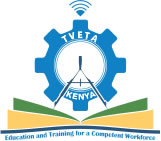Entry Requirements
At least D plain in KCSE or a PASS in Artisan level
Duration: 12 Months
Delivery Method: Both Online & Physical
Fee Structure
Course Fee Breakdown
Trimester 1
| Trimester 2
| Trimester 3
|
Exam Fee Breakdown
| Trimester 1 | Trimester 2 | Trimester 3 | ||||||||||||
|---|---|---|---|---|---|---|---|---|---|---|---|---|---|---|
|
|
|
Other Mandatory Course Requirements
The following are mandatory requirements needed upon admission:
- Photocopy of KCSE result slip or certificate or Equivalent
- Photocopy of National ID Card
- Photocopy of Birth certificate
- 6 A4 sized books
- A minimum 3 ballpoint pens
- A smart phone is greatly necessary
|
Engineering Equipment (Ksh. 3,280) Engineering Lab Coat (Ksh. 1,000) |
Course Units/Overview
Belowis a breakdown of the units offered under this course
|
|
| ||||||||||||||||||||||||||||||||||||||||||||||||||||||
Course Description
Craft Certificate Module 1 in Electrical and Electronics Engineering (Power Option), is a one-year course offered at Uwezo College and is designed to provide students with a strong foundational knowledge and practical skills in electrical and electronics engineering, with a specialized focus on power systems. This course, examinable by the Kenya National Examinations Council (KNEC), aims to equip students with the essential skills and expertise required for entry-level positions in the dynamic field of electrical and electronics engineering. To enroll in Craft Certificate Module 1 in Electrical and Electronics Engineering (Power Option), students must have obtained a minimum of a KCSE Grade D plain or have successfully passed the Artisan level in a related field. These prerequisites ensure that students have the foundational knowledge required to excel in this craft certificate program.
Course Structure:
The curriculum covers an extensive range of key areas, providing students with foundational knowledge and practical skills in electrical and electronics engineering, with a specific focus on power systems:
-
Introduction to ICT: Familiarity with information and communication technology tools and software used in the field of electrical and electronics engineering.
-
Entrepreneurship: Introduction to entrepreneurship principles, focusing on business fundamentals and entrepreneurial skills relevant to electrical and electronics engineering professionals.
-
Course Foundation and General Studies: A well-rounded education that includes foundational knowledge in general studies, providing students with a broad understanding of the world and their roles within it.
-
Workshop Technology: Hands-on training in workshop technology, emphasizing the safe and effective use of tools and equipment in the field.
-
Electrical Principles: An exploration of electrical principles and concepts relevant to power systems, including electrical circuits, components, and safety procedures.
-
Applied Science: Knowledge of scientific principles applied to electrical and electronics engineering, enhancing the comprehension of power-related concepts.
-
Trade Practice: Hands-on practical training, enabling students to apply the knowledge gained in real-world electrical and electronics engineering scenarios, including power systems assembly, maintenance, and troubleshooting.
-
Technical Drawing: Proficiency in technical drawing and design, with an emphasis on creating accurate and detailed technical drawings for electrical and electronics systems.
-
Electronics: An in-depth exploration of electronic components, circuits, and systems, with a focus on power-related applications.
-
Mathematics: Foundational mathematics, including algebra, geometry, and calculus, tailored to electrical and electronics engineering applications.
-
Solar Installation Systems: Training in solar power systems, including installation, maintenance, and troubleshooting of solar panels and related equipment.
-
Electrical Installation Systems: Proficiency in electrical installation systems, focusing on electrical wiring, circuitry, and safety procedures.
Skills and Competencies:
Upon completing Craft Certificate Module 1 in Electrical and Electronics Engineering (Power Option), students will acquire essential skills and competencies vital for success in the field:
-
Skills in using information and communication technology tools and software relevant to electrical and electronics engineering.
-
Introduction to entrepreneurship principles and business fundamentals, fostering an entrepreneurial mindset for future career opportunities in electrical and electronics engineering.
-
A well-rounded education encompassing general studies, providing students with a broad understanding of the world and their roles within it.
-
Hands-on experience in workshop technology, emphasizing safety and effective use of tools and equipment.
-
Proficiency in electrical principles and concepts, with a focus on power systems, electrical circuits, components, and safety procedures.
-
Knowledge of scientific principles applicable to electrical and electronics engineering, enhancing the comprehension of power-related concepts.
-
The ability to apply theoretical knowledge to real-world electrical and electronics engineering scenarios, including power systems assembly, maintenance, and troubleshooting.
-
Skills in creating accurate and detailed technical drawings for electrical and electronics systems.
-
In-depth understanding of electronic components, circuits, and systems, with a focus on power-related applications.
-
Strong foundational mathematics skills essential for electrical and electronics engineering calculations and problem-solving.
-
Mastery of solar installation systems and electrical installation systems, including wiring, circuitry, and safety procedures.
Why Study at Uwezo College
Uwezo College is your ideal choice for quality education and career success. With full licensing from TVET, serving as an examination centre for KNEC and NITA, and being an approved training centre for KASNEB courses, we offer the most comprehensive and accredited education. Our track record of producing top-performing graduates who excel in the job market sets us apart. When you choose Uwezo College, you're making a commitment to your future, ensuring you receive the finest education, expert guidance, and a competitive edge in today's competitive job market. Join us and secure your path to success.
The following are reasons why you should make Uwezo College as the choice for your studies:
- We are a TVET Technical and Business College fully registered with the Ministry of Education
- We provide a serene learning environment and fully equiped workshops
- We have qualified, competent and committed lecturers
- Guaranteed attachment
- We provide bursaries to the extremely needy students
- We have free high speed Internet connectivity to our students
- Affordable fees
- We have clean and spacious hostels
- We provide job linkages
Career Opportunities:
Upon completing Craft Certificate Module 1 in Electrical and Electronics Engineering (Power Option), graduates can pursue entry-level positions in electrical and electronics engineering, including Electrical Technicians, Electronics Assemblers, and Power Systems Assistants. This program equips students with the foundational knowledge and practical skills needed to embark on a successful career in electrical and electronics engineering, particularly in the realm of power systems.
Course Instructor(s)
 DANIEL MUTHOKA KANGWANA
DANIEL MUTHOKA KANGWANA
 CATHERINE MWENDE MUMBE
CATHERINE MWENDE MUMBE
 DANIEL MUTUKU KYALO
DANIEL MUTUKU KYALO
 MWENDE KATUMBU ROSE
MWENDE KATUMBU ROSE
Examining Body
KNEC
FAQs
What are the requirements for registration/admission as a student?
- KCSE result slip or certificate or Equivalent
- National ID Card or Birth certificate
- 2 Passport size photographs
- Registration Fee
- Student ID Fee
- Maintenance Fee
- Material Fee(where applicable)
- Polo T-Shirt fee
- Insurance Fee
- Student's handbook fee
Course Reviews
Top Rated Reviews
No course reviews are available at the moment. Reviews are only submitted by students persuing the course. Reviews are subject to our terms and conditions.






